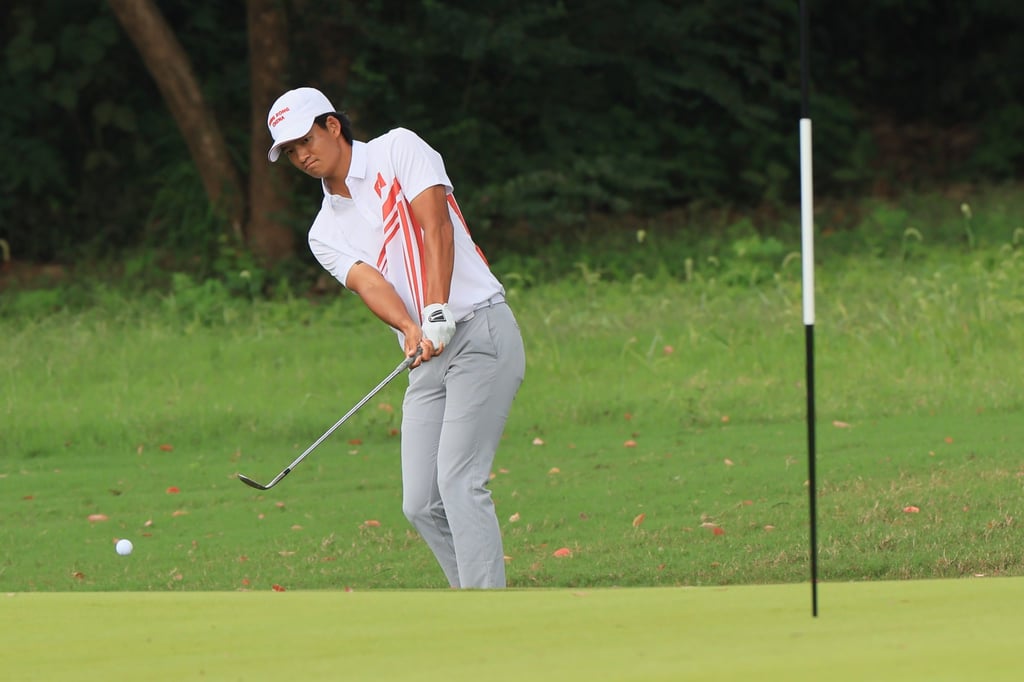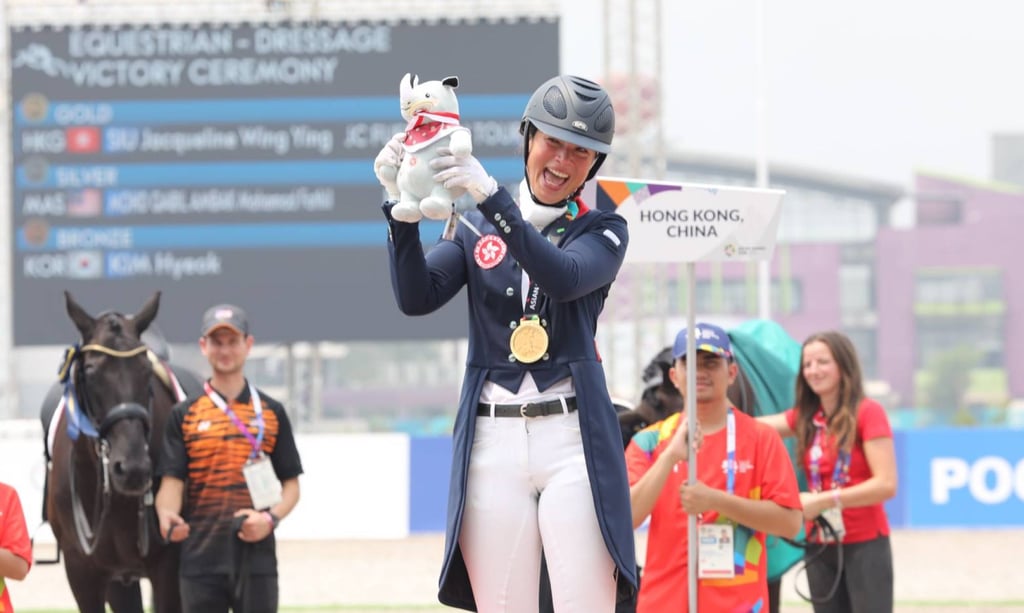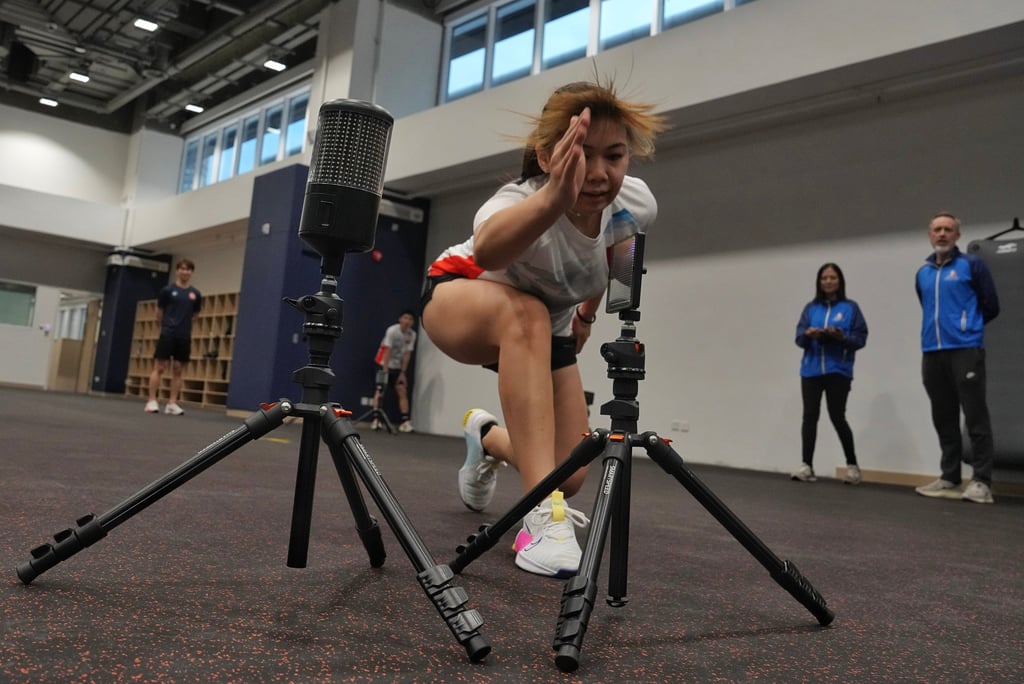From strength to strength: Hong Kong’s rise as hub for sporting excellence
The Hong Kong Jockey Club has built city’s renowned horse-racing tradition and been pivotal to support of its world-class home-grown athletes
The official opening of the HK$30 billion (US$3.8 billion) Kai Tak Sports Park in March – with an eponymous 50,000-seater stadium as a centrepiece and facilities for the public – has strengthened Hong Kong’s reputation as a hub for sports events that cater for everyone, from professionals to the city’s grass-roots enthusiasts.
It builds on the standards set by such iconic venues as the racecourses at Happy Valley and Sha Tin – hosts of the 88 annual racedays that have long established horse racing as the city’s No 1 spectator sport – and Hong Kong Stadium, which has helped welcome global sports to the city since its 1994 reopening after redevelopment funded by The Hong Kong Jockey Club (HKJC).
The opening of the new facilities came after Hong Kong Chief Executive John Lee Ka-chiu reaffirmed the government’s commitment to ensuring sport is a pillar of local society during last year’s annual policy address while mapping out his plans for future support.
Nearly HK$8 billion has been earmarked for sports development this year – a figure that has more than doubled in the past 10 years – as individual Hong Kong athletes continue to make their mark on a host of international sports.
The policy address also announced that horse racing has been included in the Culture, Sports and Tourism Bureau’s Development Blueprint for Hong Kong’s Tourism Industry 2.0. In March, the HKJC signed a memorandum of understanding with China Travel Service (Hong Kong) to jointly promote horse racing tourism, cultural exchange and youth development between Hong Kong and mainland China.

Over the decades, the HKJC has been hosting international competitions featuring top international jockeys and trainers, including 12 of the world’s most prestigious Group One races.
The city has also nurtured many home-grown jockeys and champion racehorses, including Vincent Ho, a graduate of the HKJC Apprentice Jockeys’ School whose career highs included achieving a clean sweep at the 2019-20 four-year-old series with Golden Sixty and winning an epic triumph at the 2023 Longines International Jockeys’ Championship.
Hong Kong’s racing scene has been home to incredible equine talent. Take the legendary Silent Witness, whose remarkable 17 consecutive victories between 2002 and 2005 are still unmatched. Another star, Romantic Warrior, began his career in the city in 2021 and has quickly risen to become the world’s highest-earning racehorse.
Members of the HKJC Equestrian Team also started winning medals at back-to-back Asian Games from 2010, culminating in Jacqueline Siu, who now ranks among the equestrian world’s elite, winning a gold medal for Hong Kong at the Asian Games in Jakarta in 2018 and then a silver in Hangzhou in 2023.

Many sports in which elite athletes compete have all been granted the top Tier A status at the Hong Kong Sports Institute (HKSI) – the training centre that has been supported by the HKJC to the tune of more than HK$754 million. The institute not only provides athletes with coaching and training facilities but also offers them the opportunity to qualify academically in the field of sports training.
Buoyed by recent successes, the institute last year unveiled a HK$1 billion training and sports science building that aims to continue to raise the performance levels of local athletes. The move came after the government and the HKJC in 2023 announced a joint fund of HK$300 million to support sports science and research at the institute.
The city’s commitment to sport also runs deep into all levels of the community, with HKJC initiatives opening up access to various sports. The JC Youth Football Development gives schoolteachers and young people the opportunity to receive professional coaching and learn leadership skills. Elite youth teams can play and train together with world-class counterparts as the HKJC has been the community football partner of English Premier League team Manchester United in Hong Kong since 2012.

School outreach golf programmes funded by The Hong Kong Jockey Club Charities Trust (the trust), launched in 2017, have allowed tens of thousands of primary and secondary grade students to learn and play golf in programmes delivered in school playgrounds and on The Jockey Club Kau Sai Chau Public Golf Course. In addition, the HKJC’s public riding schools attract more than 60,000 attendees of all ages each year.
Meanwhile, the Jockey Club Sevens community programmes have this year enabled more than 10,000 people of all ages and backgrounds to engage in various sporting activities and meet elite athletes. Those initiatives were celebrated at March’s Hong Kong Sevens tournament – for which the HKJC was the official community partner – held for the first time at Kai Tak Stadium.
It is worth reflecting on just how far sport in Hong Kong has come, thanks to the support of the Hong Kong government and the wider community, and with the HKJC long playing a major role.
It was in 1982 that the HKSI was established in Sha Tin with funding from the HKJC, in partnership with the government, to provide training to athletes. Subsequently, an endowment of HK$200 million was provided by the trust in 1992 to set up a trust fund – now called the Hong Kong Jockey Club Elite Athletes Fund – to support the training, education and career development of top sportsmen and sportswomen.
On the back of the city’s historic success at the 1996 Atlanta Olympics – when windsurfer Lee Lai-shan won Hong Kong’s first-ever medal (gold in the mistral class) – the government further rolled out a host of initiatives to support sport development, including setting up the Hong Kong Athletes Fund with an initial injection of HK$8 million. The policy immediately received city-wide support, with further community donations exceeding HK$5 million.
Over the years, further investments into the fund, managed by HKSI, have helped to drive the continued success of the city’s athletes, while the Jockey Club Athlete Incentive Awards Scheme (JCAIAS) has been set up to offer cash rewards for those local athletes who shine on the global stage. To date, this three-year scheme has awarded HK$73.6 million to local athletes who have achieved outstanding results at the Olympics and at other major international events such as the Paralympics and the Asian Games.
In 2021, after the excellent performances of Hong Kong athletes in Tokyo, the HKJC pledged HK$150 million in funding to match the government’s HK$150 million grant for the Sports Science and Research Funding Scheme. This supports the adoption of scientific methods and advanced technologies for athletes’ training and gear to help them improve internationally.

These investments have paid off at the very highest level. At the 2024 Paris Olympics, fencers Cheung Ka-long and Vivian Kong Man-wai both won gold medals, and swimmer Siobhan Haughey claimed two bronze to follow up the city’s record haul of six medals (one gold, two silver, three bronze) won at the Tokyo Games in 2020. All these sporting heroes were then the recipients of rewards under the JCAIAS.
With the support of the HKJC, the city’s athletes continue to have their eyes on the future. In November, Hong Kong will co-host the 15th National Games – the first time the city becomes a venue for the country’s highest-level multi-sport event held every four years – alongside Guangdong and Macau.
